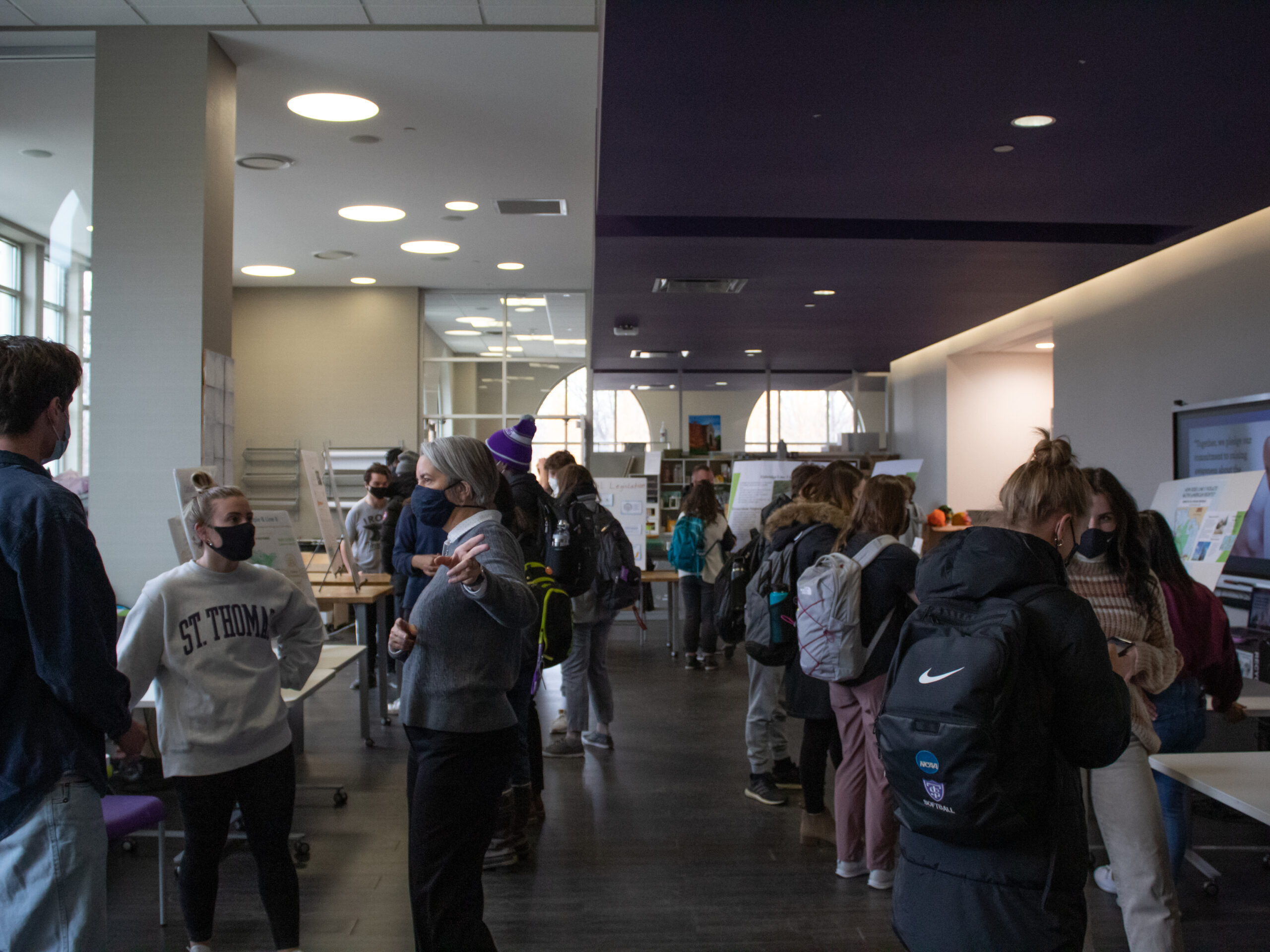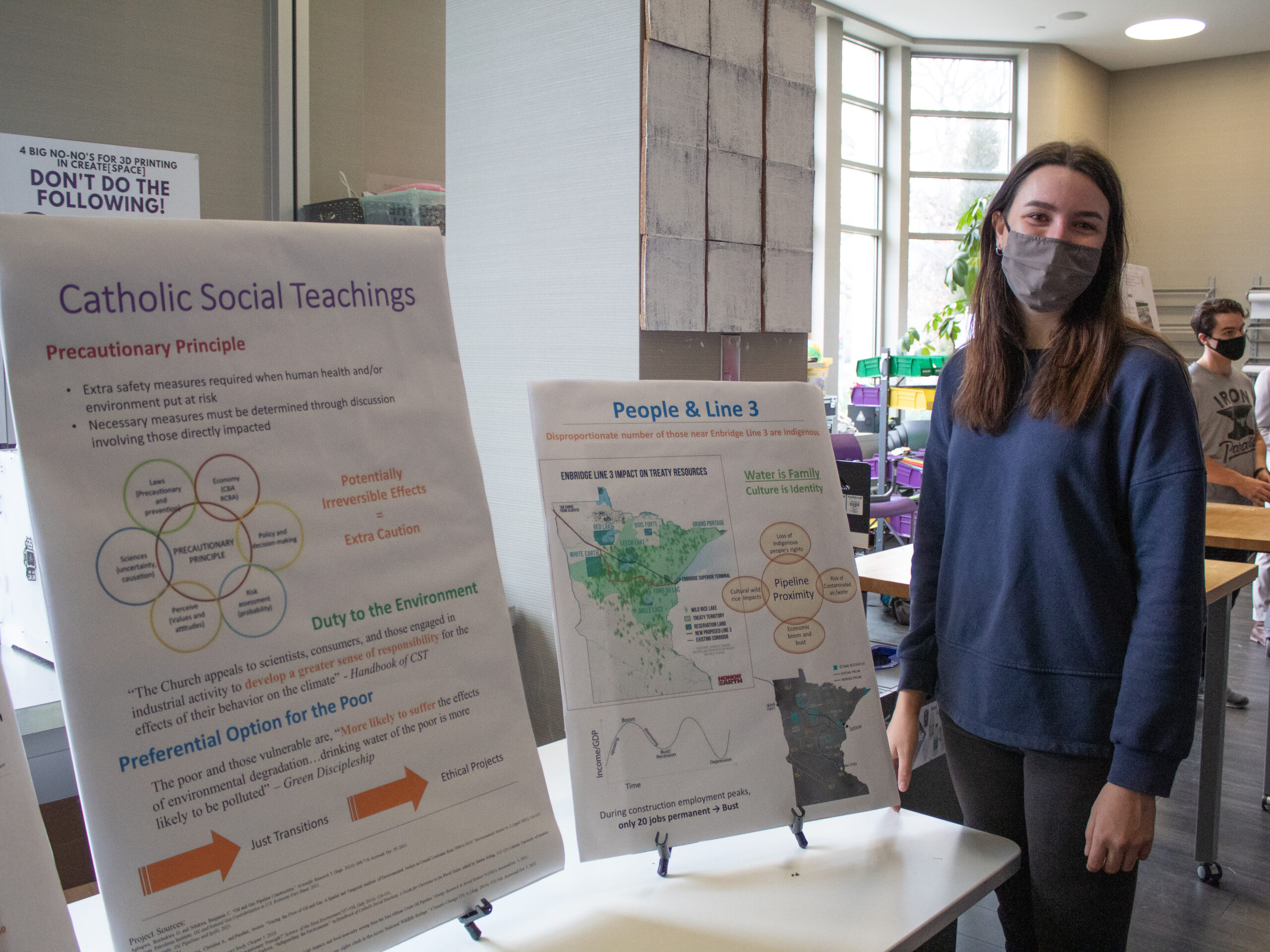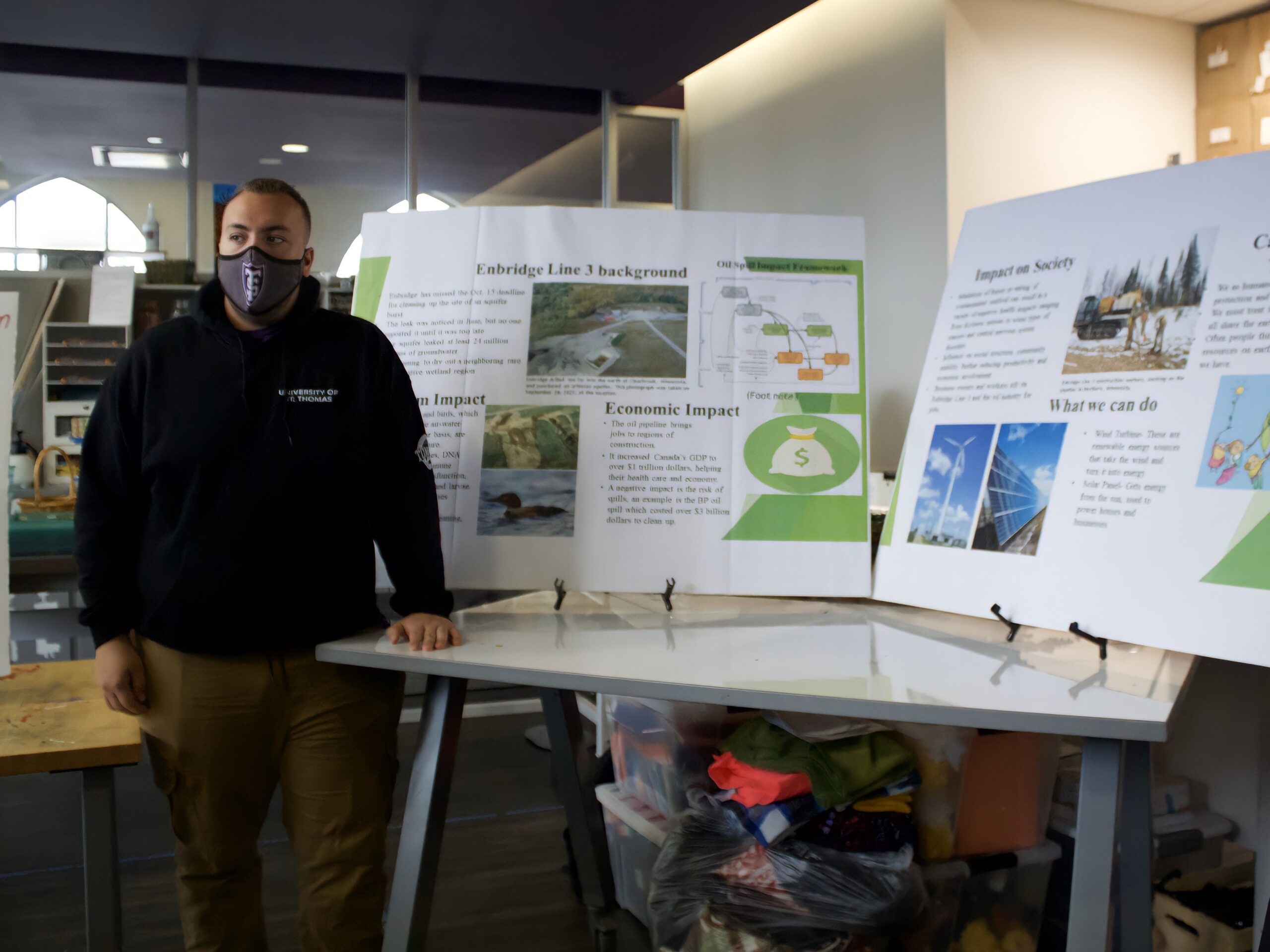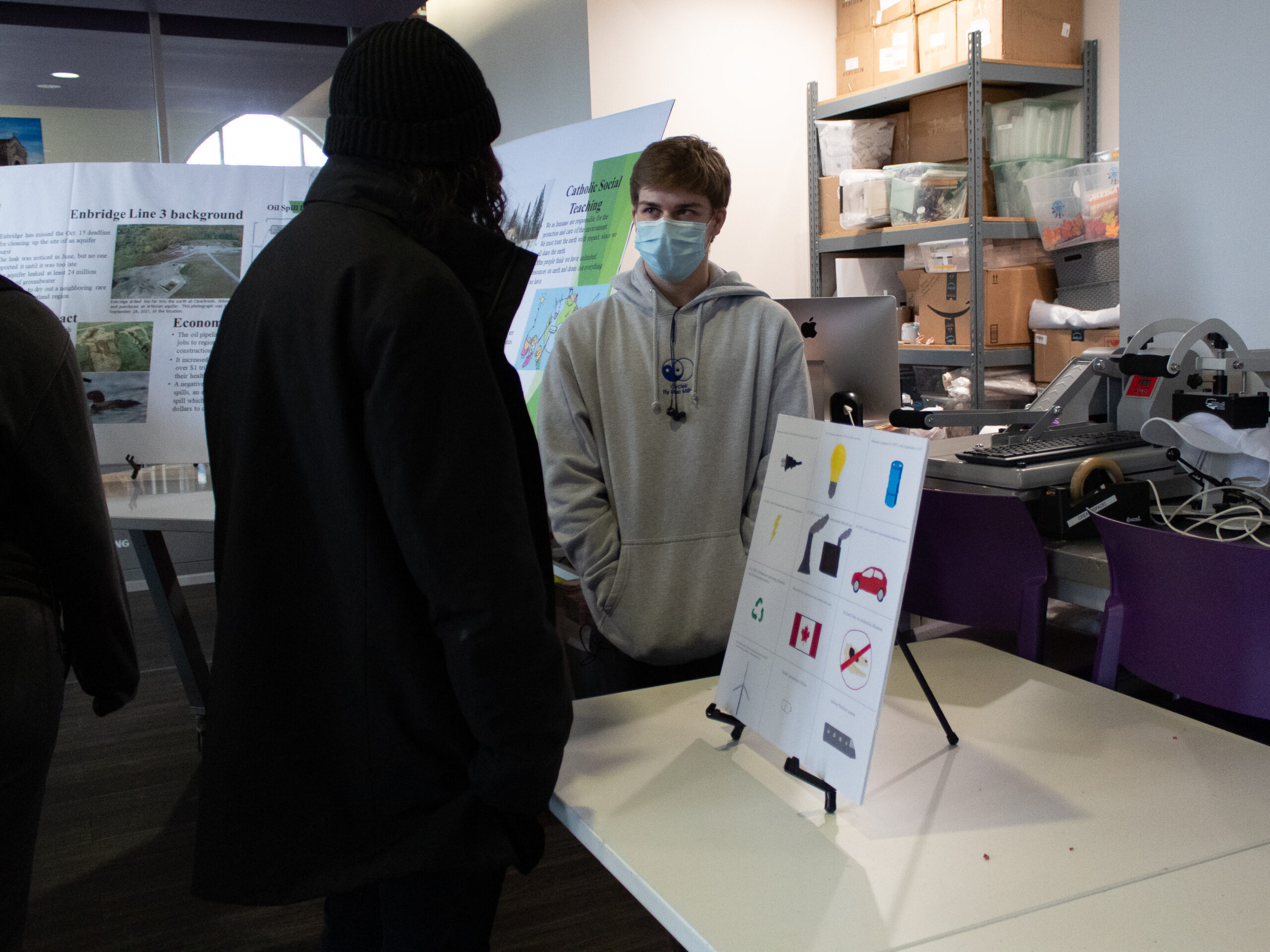Students in St. Thomas professor Cara Anthony’s Theology and the Environment course have conducted extensive research on the issues surrounding Enbridge Energy’s Line 3 pipeline, which is located throughout northern Minnesota.
Students found that oil pipelines are endangering lands, affecting Native American treaties and learned what needs to be done to combat this. The research was done through a theological lens because the course focuses on the relation between humans and God’s natural environment.
Anthony has been teaching this course for over ten years, but this is the first time she is teaching it alone, and the first year she is introducing this project. Line 3 has been in operation since 1968, and Enbridge first proposed its replacement seven years ago and because the project is set to finish in late 2021, Anthony felt this was a good year for students to conduct research.
“I was open to doing something a little new and different and I’m also really working to integrate environmental sustainability and racial justice together to show how they’re connected and the issue of this Enbridge Line 3, which is being completed here in Minnesota,” Anthony said.
The students presented their research at an event, Oil Pipelines and Caring for our Common Home, on Nov. 18, in the create[space]. The information presented was focused not only on environmental issues but also theology and caring for God’s creation.
“One of the big teachings of Pope Francis in his big 2015 letter about the environment, called ‘Laudato Si’, is that social justice and human society justice and environmental justice are pretty much just two sides of the same coin,” Anthony said. “ (Enbridge Line 3) was a situation where that was very clear and easy to see.”
Each student selected a different topic and wrote individual research papers on their choice. Junior Bella Mascia presented on treaty rights and how Native American lands are being affected, and why it’s important that people learn about this.
“I think it’s important specifically because it’s taking place in our home state,” Mascia said. “It’s not only affecting people that are surrounding us but also it’s affecting our waterways and our land up North.”
The class has been conducting their research for almost the entire semester, using resources from the library and online databases, as well as working with a non-profit in the Twin Cities.
“We collaborated with Minnesota Interface Power and Light… and they have been very active in supporting resistance to this pipeline,” Anthony said. “(My students) met with Minnesota Interface Power and Light folks on a couple of occasions, and learned a little bit more about their work.”
One of the biggest arguments against Enbridge Energy’s Line 3 is that there are other sources of energy available. Junior Julian Lockhart spent his time researching on why renewable energy sources are better than oil.
“There’s other ways to get our energy,” Lockhart said. “(Line 3) shouldn’t be here… it costs a lot of money to clean up and maintain, and you’re not going to have to spend that money if you get a solar panel or wind turbines.”
Ellie Nodland, a senior studying civil engineering, is worried about state projects being done unethically. Nodland researched how individuals are able to combat the damage that Line 3 is causing.
“Pipelines and a lot of our infrastructure isn’t done in the most ethical way, but we can make a difference, even if that is just writing to our government,” Nodland said.
Anthony hopes that by conducting this research, her students and those that attended the event come away with a sense of empowerment and feel like they are able to do something about these issues.
“I’m just really proud of my students, how they, I think, have really worked together and embodied the campus ideal of all for the common good,” Anthony said. “They brought some really valuable information to the St. Thomas community.”
Noelle Gahnz can be reached at gahn8228@stthomas.edu.






Great to see the work that has been done by these students. Since they are taking an active stance against pipelines, I assume they have taken a vow to refuse to use anything made from petroleum products. Things such as gas for their cars, natural gas or propane to heat their homes, or anything made from plastic – such as a computer or a smartphone, plastic bottles, cosmetics, foam used in the furniture they sit on, even the rubber tires on your mountain bike. I assume that you have also refused to use jet fuel to go on their spring breaks. Or how about the thousands of medical devices that keep patients alive in the hospitals and deliver cures the help us live longer? Yes, it all comes from crude oil, delivered safely by pipelines. Is this hitting too close to home? You protest the pipeline that actually delivers countless ways that enrich your life. You will definitely NOT be giving up any of these things – you know it and I know it. You are ignorant and unwilling to see the truth.
And if your research is fair, you should go interview the hundreds of native people that worked on Line 3, or the millions of dollars paid to native-owned businesses. Until you truly explore these issues in an objective way, you will continue to propagate ignorant people who do not understand reality and who are deaf, dumb and blind to see anything outside their narrow view.